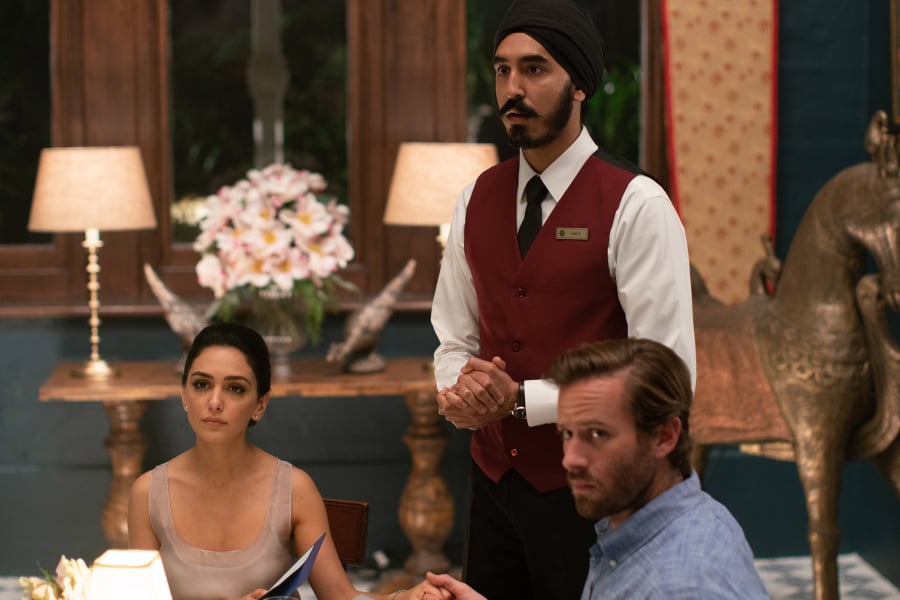In many ways, “Hotel Mumbai” feels like “The Towering Inferno” for the new millennium: an old-fashioned disaster flick, set in what one character calls a “crazy elegant” hotel — except here the conflagration is set off not by an electrical defect, but by the flames of sectarian animus and geopolitical division.
It’s also, more or less, a true story, with a gripping — at times, almost too gripping — screenplay by director Anthony Maras and John Collee, who based their fictionalized telling of the events on the Emmy-nominated documentary “Surviving Mumbai.”
The new movie concerns the 2008 terrorist attacks in Mumbai, in which militants from Pakistan laid siege to several sites in India’s largest city, including the Taj Mahal Palace Hotel, where most of the film takes place. In the film, the attackers — members of the Lashkar-e-Taiba Islamist militia — are never identified, yet there’s no lingering mystery about their anti-India sentiments.
As the film opens, a group of sullen men approach Mumbai by raft, with their leader, identified as the “Bull” and heard only by phone, urging his companions to cast their eyes toward the city’s skyline and “look at what they stole from you.” Considering the long-standing tensions between the predominantly Muslim nation of Pakistan and its neighbor, the predominantly Hindu India, it isn’t hard to do the math.
Indians will be the primary targets, along with moneyed Westerners, whose prominence the terrorists hope to use to draw attention to their cause.
For the purposes of the story, a single couple embodies this central conflict, and one of its contradictions: David (Armie Hammer) and his wife, Zahra (Nazanin Boniadi), an affluent young couple with a new baby and a nanny (Tilda Cobham-Hervey). They become, at least for a while, the story’s seeming protagonists, even when the terrorists realize that Zahra is Muslim. Her recitation of the Koran doesn’t soften their hearts — or stop them.
Not much does.
For a good long time, “Hotel Mumbai” is a ticktock of horrific violence, which began in the city’s main train station and shifted to the hotel when the Taj opened its doors to fleeing victims (and attackers who blended in with them). It’s disturbing, to put it mildly, to watch them move through the building, killing people (often graphically) like they are swatting flies, and only stopping to snack on leftover food from a restaurant bus cart. At one point, one of the men bites into a slice of pizza, only to spit it out when his comrade tells him it contains pork. Try that one over there, he is told, it’s vegetarian.
The callousness with which the terrorists operate is palpable and conveyed with a degree of verisimilitude that borders on sadism. “Hotel Mumbai” is a clockwork thriller, but man, is it hard to watch.
As it turns out, the film’s heroes are not actually David and Zahra, but rather the hotel’s staff, embodied by a stoic Sikh waiter (Dev Patel, playing a composite character) and the hotel’s selfless chef, Hemant Oberoi (Anupam Kher, playing a real person), who leads a cadre of other hospitality workers to help save their guests. “The guest is God,” Oberoi reminds a group of employees who volunteer to stay behind and do what they can while they wait for outside help. It’s a line both tailor-made for an action movie — one in which the heroes don’t wear capes but name tags and aprons — and unsettlingly classist.
That tension is, of course, one of the most problematic (and interesting) things about “Hotel Mumbai,” which could just as easily have gone in another direction: one in which the characters played by big-name actors get all the glory.



